Photo AI
Last Updated Sep 26, 2025
Character Analysis Simplified Revision Notes for A-Level OCR English Literature
Revision notes with simplified explanations to understand Character Analysis quickly and effectively.
482+ students studying
Character Analysis
Mark Antony
Overview
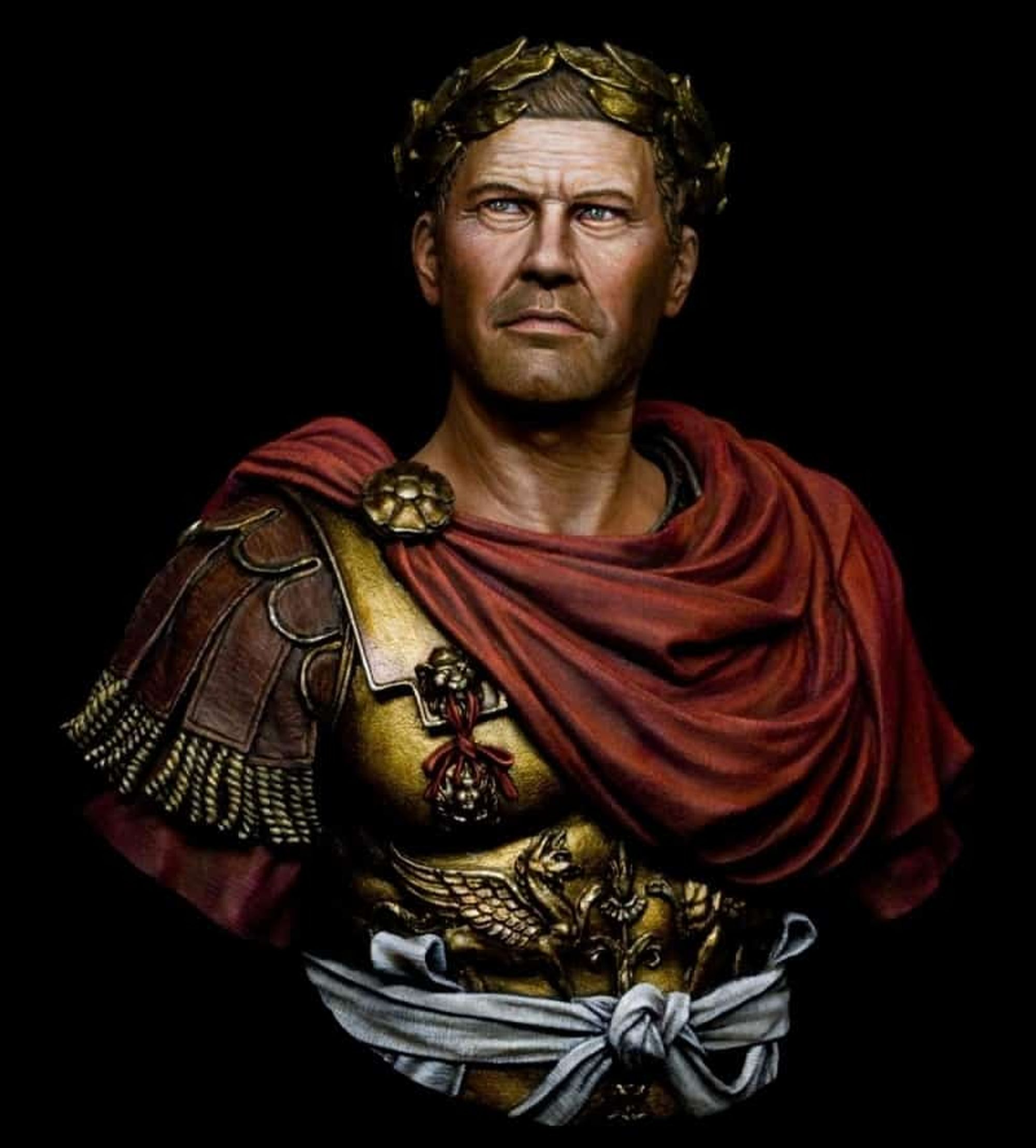
Mark Antony, one of the three triumvirs ruling the Roman Empire, is a powerful and charismatic leader whose deep love for Cleopatra, Queen of Egypt, ultimately leads to his downfall. Antony is depicted as a valiant warrior, a passionate lover, and a conflicted leader torn between his duties to Rome and his desire for a life of pleasure and love with Cleopatra. His internal struggle and shifting loyalties are central to the play's exploration of power, honor, and personal versus public duty.
Key Moments in the Play
- Antony's Infatuation with Cleopatra (Act 1, Scene 1): Antony is shown deeply in love with Cleopatra, neglecting his responsibilities in Rome.
- Departure from Egypt (Act 1, Scene 2): Antony decides to return to Rome upon hearing of his wife Fulvia's death and the threats to his political position.
- Marriage to Octavia (Act 2, Scene 2): To mend relations with Octavius Caesar, Antony marries Octavia, Octavius's sister, though his heart remains with Cleopatra.
- Defeat at the Battle of Actium (Act 3, Scene 10): Antony's decision to follow Cleopatra's retreat during the naval battle leads to a significant defeat.
- Antony's Death (Act 4, Scene 14): Believing Cleopatra has committed suicide, Antony attempts to take his own life. He ultimately dies in her arms after learning she is still alive.
Key Themes
- Love and Loyalty: Antony's love for Cleopatra causes him to neglect his duties and lose the support of Rome, highlighting the conflict between personal affection and public duty.
- Honour and Betrayal: Antony grapples with his sense of honour, feeling betrayed by his actions and those around him. His decisions lead to both personal and political betrayal.
- Power and Ambition: Antony's struggle for power is compromised by his love for Cleopatra, contrasting with Octavius's calculated ambition.
- Identity and Transformation: Antony's identity shifts from a respected Roman general to a lover entranced by Cleopatra, illustrating the transformative power of love and desire.
Key Quotes
"Let Rome in Tiber melt, and the wide arch / Of the ranged empire fall! Here is my space." (Act 1, Scene 1)
- Antony expresses his willingness to abandon Rome and his responsibilities for Cleopatra, indicating the depth of his passion.
- This quote highlights the conflict between Antony's duties and his desires, showcasing his intense infatuation and foreshadowing his eventual downfall.
"These strong Egyptian fetters I must break, / Or lose myself in dotage." (Act 1, Scene 2)
- Antony acknowledges that his bond with Cleopatra is like a set of chains, and he must leave to preserve his identity and honour.
- This line reflects Antony's awareness of his predicament and the internal conflict between his love for Cleopatra and his Roman virtues.
"O, whither hast thou led me, Egypt? See, / How I convey my shame out of thine eyes / By looking back what I have left behind / 'Stroy'd in dishonour." (Act 3, Scene 11)
- Antony laments the consequences of following Cleopatra, realizing the dishonour and destruction he has brought upon himself.
- This quote illustrates Antony's profound regret and the heavy toll of his decisions, emphasizing the theme of honour and betrayal.
"I am dying, Egypt, dying: / Only I here importune death awhile, until / Of many thousand kisses the poor last / I lay upon thy lips." (Act 4, Scene 15)
- As Antony dies in Cleopatra's arms, he reflects on his love for her, making his final moments a testament to their tragic romance.
- This line underscores the play's exploration of love and loyalty, portraying Antony's ultimate surrender to his passion for Cleopatra.
"The breaking of so great a thing should make / A greater crack: the round world / Should have shook lions into civil streets, / And citizens to their dens." (Act 5, Scene 1)
- Octavius reflects on Antony's death, acknowledging the magnitude of his downfall and its impact on the world.
- This quote highlights the significance of Antony's character and his tragic end, emphasizing the play's themes of power and ambition.
Cleopatra
Overview
Cleopatra, the Queen of Egypt, is a powerful and charismatic leader known for her beauty, intelligence, and manipulative skills. She is a complex character who embodies both political acumen and deep emotional passion. Her relationship with Mark Antony is central to the play, driving much of the plot and highlighting the themes of love, power, and betrayal. Cleopatra's actions and decisions are driven by a desire to maintain her power and independence, even as she navigates her tumultuous relationship with Antony.
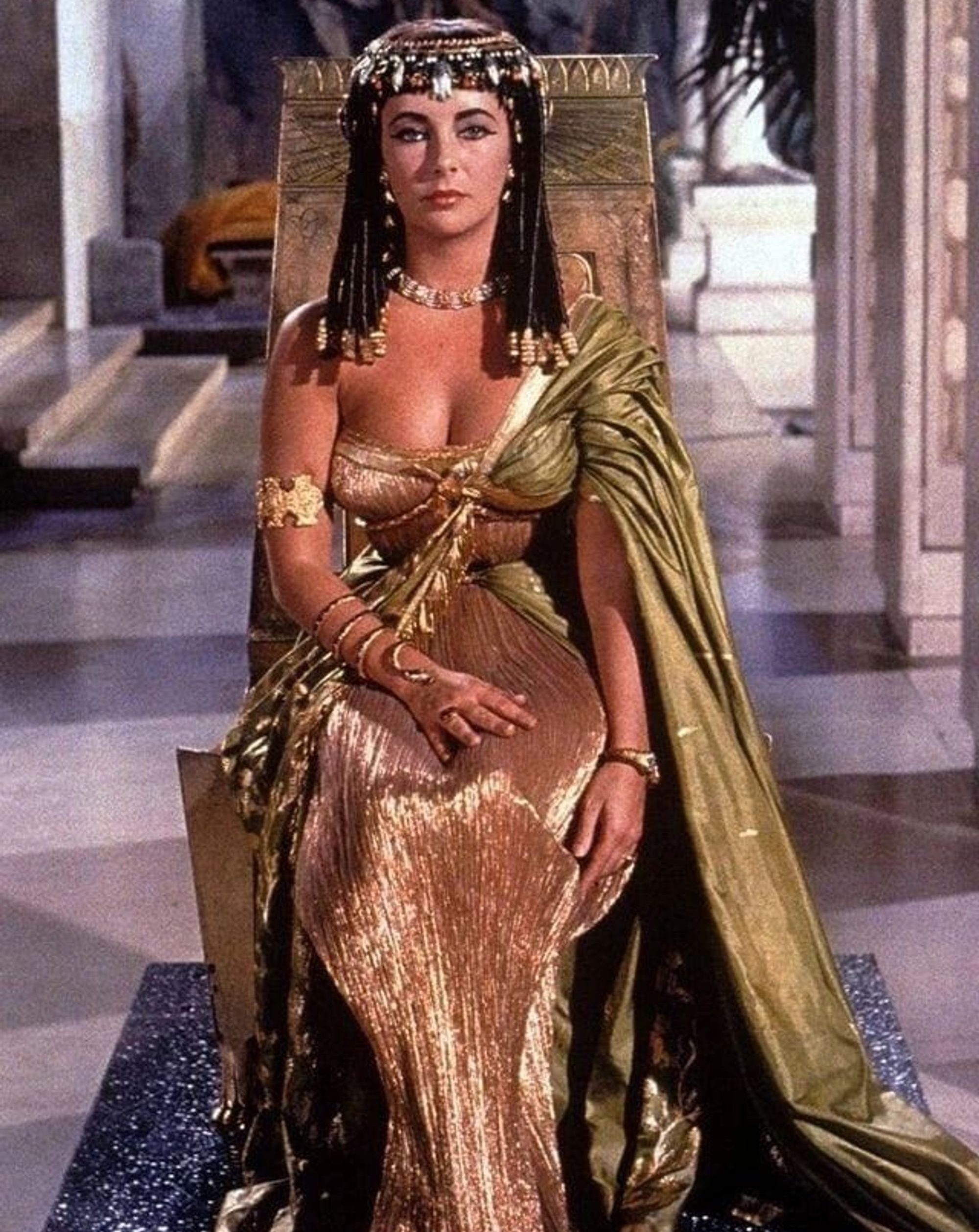
Key Moments in the Play
- Cleopatra's Introduction (Act 1, Scene 1): Cleopatra's playful and manipulative nature is immediately evident as she tests Antony's love for her.
- Cleopatra's Reaction to Antony's Departure (Act 1, Scene 3): Cleopatra manipulates Antony by feigning illness and emotional distress to keep him in Egypt.
- Battle of Actium (Act 3, Scene 10): Cleopatra's retreat during the naval battle leads to Antony's defeat, showcasing her influence and the tragic consequences of their love.
- Cleopatra's Capture and Final Act (Act 5, Scene 2): Facing capture by Octavius, Cleopatra chooses to end her life on her terms, using an asp to commit suicide.
Key Themes
- Love and Power: Cleopatra's relationship with Antony blurs the lines between genuine affection and political strategy. Her love is intertwined with her desire for control and influence.
- Manipulation and Control: Cleopatra frequently uses her charm and intelligence to manipulate those around her, including Antony, to maintain her power and protect Egypt.
- Identity and Reputation: Cleopatra is acutely aware of her public image and legacy. Her final act of suicide is a means to preserve her dignity and avoid humiliation by Octavius.
- Gender Roles: Cleopatra defies traditional gender roles, exhibiting both traditionally masculine and feminine traits. Her leadership and dominance challenge the male-dominated political landscape of Rome.
Key Quotes
"Let Rome in Tiber melt, and the wide arch / Of the ranged empire fall! Here is my space." (Act 1, Scene 1)
- Antony declares his willingness to abandon his duties for Cleopatra.
- This quote highlights the depth of Antony's passion and Cleopatra's powerful influence over him, setting the stage for the conflict between love and duty.
"If it be love indeed, tell me how much." (Act 1, Scene 1)
- Cleopatra challenges Antony to quantify his love for her.
- This interaction demonstrates Cleopatra's manipulative nature, as she constantly seeks to test and control Antony's affection.
"Give me my robe, put on my crown; I have / Immortal longings in me." (Act 5, Scene 2)
- Cleopatra prepares for her death with dignity and resolve.
- This quote reflects Cleopatra's desire to control her fate and maintain her regal image, even in death, showcasing her strength and determination.
"Age cannot wither her, nor custom stale / Her infinite variety: other women cloy / The appetites they feed; but she makes hungry / Where most she satisfies." (Act 2, Scene 2)
- Enobarbus describes Cleopatra's timeless allure and complexity.
- This passage underscores Cleopatra's captivating and enigmatic nature, which keeps Antony and others perpetually entranced and highlights her unique power.
"O happy horse, to bear the weight of Antony!" (Act 1, Scene 5)
- Cleopatra expresses her longing and possessiveness over Antony.
- This quote reveals Cleopatra's deep emotional attachment to Antony, blending her romantic desire with a hint of jealousy and control.
Octavius Caesar
Overview
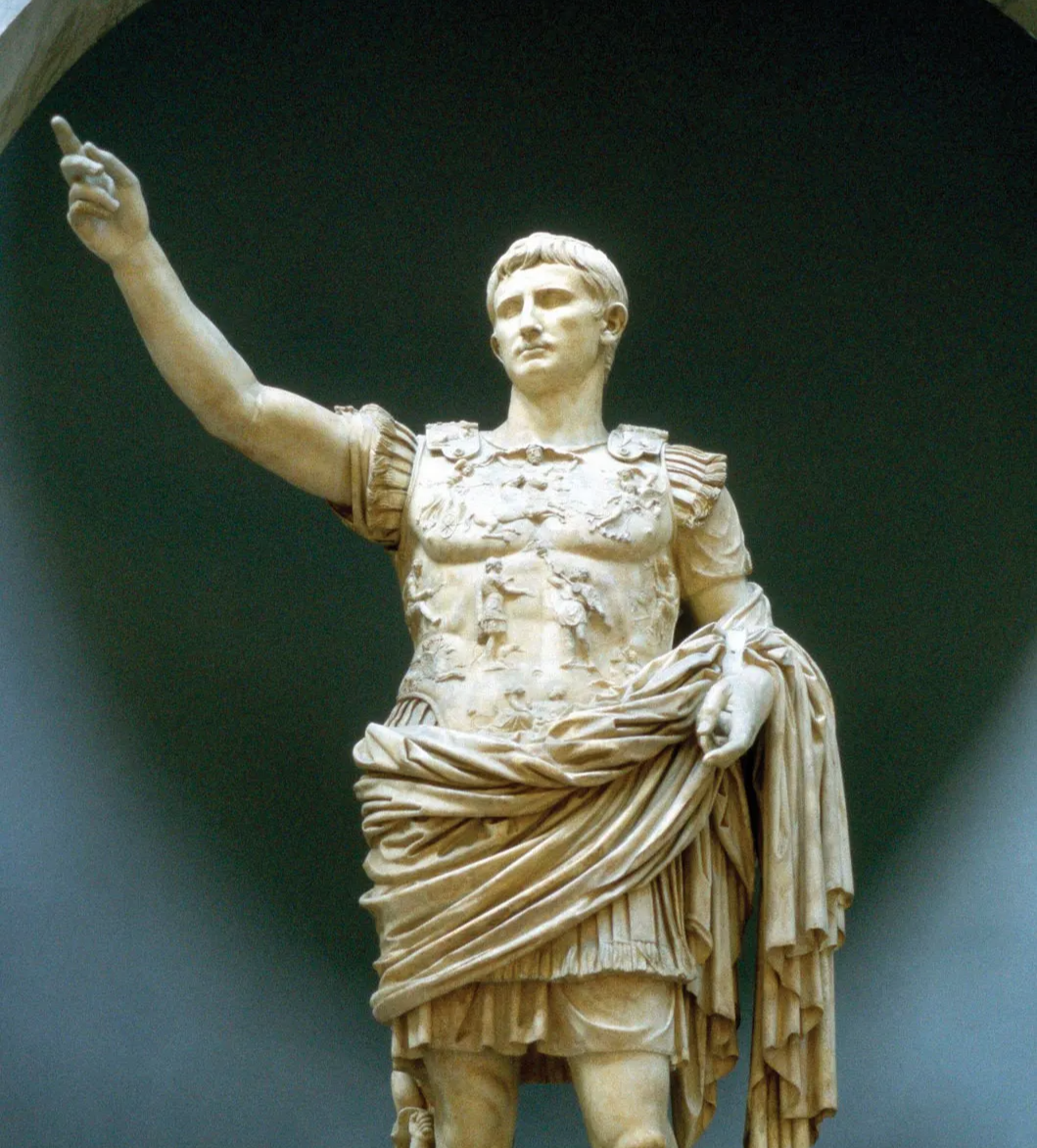
Octavius Caesar, also known as Augustus, is one of the triumvirs who ruled Rome following the assassination of Julius Caesar. He is a shrewd and calculating leader, characterized by his cold pragmatism and strategic mind. Unlike Mark Antony, who is driven by passion, Octavius is motivated by power and control, ultimately seeking to consolidate his authority over the Roman Empire. His conflict with Antony and Cleopatra forms the central political struggle in the play.
Key Moments in the Play
- Rebuking Antony (Act 1, Scene 4): Octavius criticizes Antony for neglecting his duties in favour of indulgence in Egypt, setting the stage for their eventual conflict.
- Political Manoeuvring (Act 2, Scene 2): Octavius agrees to a political marriage between Antony and his sister Octavia to strengthen their alliance, showcasing his strategic thinking.
- Battle of Actium (Act 3, Scene 10): Octavius decisively defeats Antony and Cleopatra, cementing his position as the dominant power in Rome.
- Aftermath of Antony's Death (Act 5, Scene 1): Octavius reacts to Antony's death with a mix of respect and relief, recognizing his former rival's greatness while consolidating his power.
Key Themes
- Power and Ambition: Octavius is driven by a relentless ambition to secure his dominance over Rome, contrasting with Antony's more emotionally driven actions.
- Loyalty and Betrayal: Octavius's political manoeuvres often involve betrayals, such as turning on Lepidus and ultimately defeating Antony, illustrating the ruthless nature of political loyalty.
- Honour and Strategy: Octavius's actions are guided by a strategic mind focused on the long-term stability and control of Rome, often at the expense of personal honour or loyalty.
Key Quotes
"Let Rome in Tiber melt, and the wide arch / Of the ranged empire fall! Here is my space." (Act 1, Scene 1)
- Although Antony says this, Octavius's contrasting attitude is highlighted by his reaction to such sentiments.
- This quote emphasizes the conflict between Antony's passion and Octavius's pragmatism, as Octavius values Rome's stability over personal indulgence.
"The breaking of so great a thing should make / A greater crack: the round world / Should have shook lions into civil streets, / And citizens to their dens." (Act 5, Scene 1)
- Octavius reflects on Antony's death, acknowledging its significance.
- This quote demonstrates Octavius's ability to recognize and respect the magnitude of Antony's influence, even as he consolidates his power.
"I have not kept my square, but that to come / Shall all be done by the rule." (Act 5, Scene 1)
- Octavius vows to restore order following the chaos of the civil war.
- This quote highlights Octavius's commitment to stability and governance, reinforcing his role as a strategic and pragmatic leader.
"Caesar gets money where / He loses hearts." (Act 2, Scene 1)
- Pompey criticizes Octavius's methods, suggesting he prioritizes wealth over loyalty.
- This quote underscores the ruthlessness of Octavius's leadership, willing to sacrifice personal relationships for political gain.
"Strike not by land; keep whole: provoke not battle / Till we have done at sea." (Act 3, Scene 7)
- Octavius gives strategic instructions before the Battle of Actium.
- This quote illustrates Octavius's military acumen and careful planning, contributing to his eventual victory over Antony and Cleopatra.
Lepidus
Overview
Lepidus is the third member of the Roman triumvirate, alongside Octavius Caesar and Mark Antony. He is depicted as the weakest of the three, both in terms of political power and personal strength. Lepidus often attempts to mediate between Antony and Octavius, but his efforts are largely ineffectual, and he is easily manipulated and side-lined by the more dominant figures. Ultimately, he is removed from power by Octavius, highlighting his vulnerability and lack of influence.
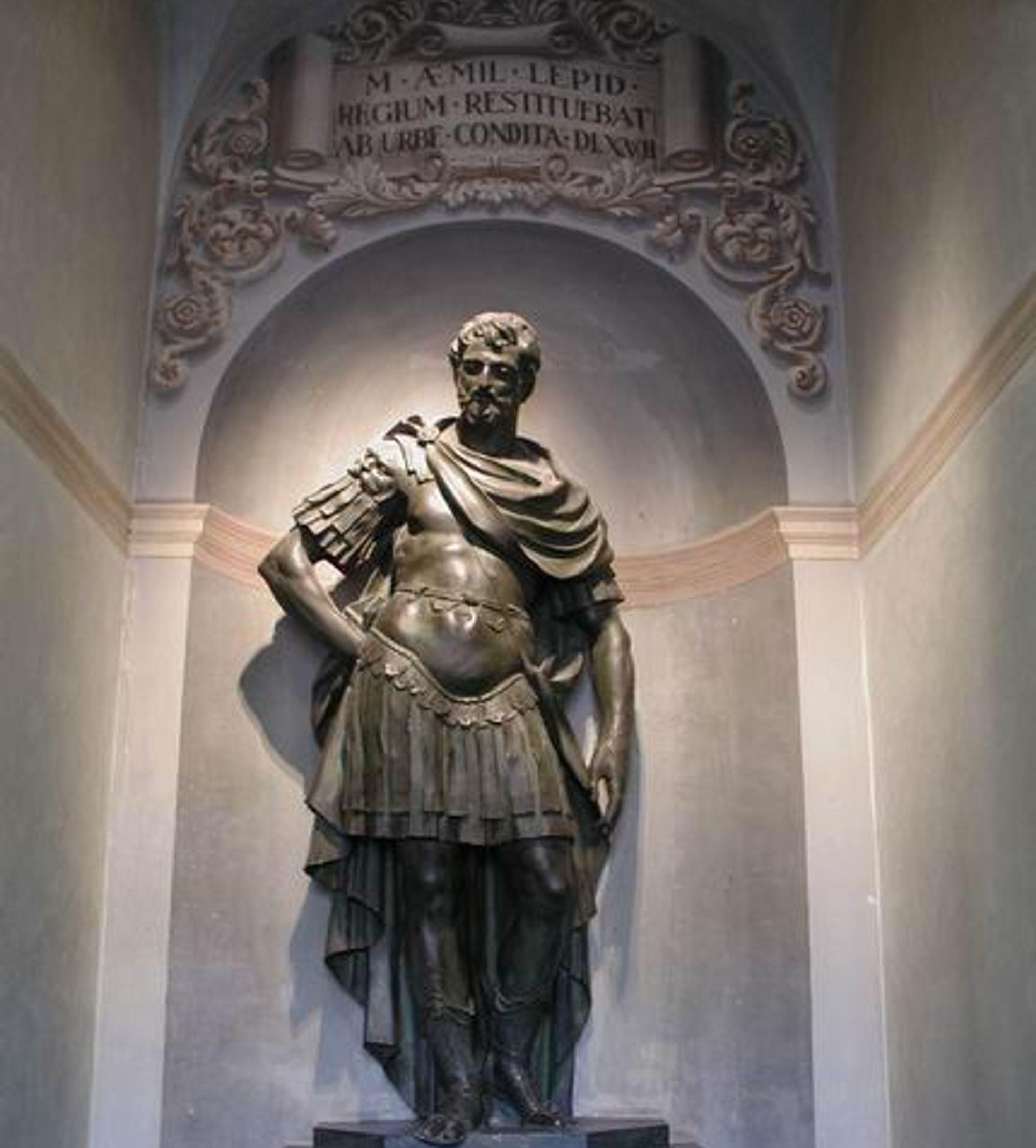
Key Moments in the Play
- Act 2, Scene 1: Lepidus is present during the discussions between Pompey, Octavius, and Antony about forming a truce. His role is largely that of a mediator, attempting to keep the peace among the more powerful leaders.
- Act 2, Scene 7: During the feast aboard Pompey's ship, Lepidus gets so drunk that he has to be carried away, showcasing his weakness and lack of self-control.
- Act 3, Scene 5: Lepidus is ousted from power by Octavius, marking his final fall from grace and demonstrating his political insignificance.
Key Themes
- Weakness and Powerlessness: Lepidus's character embodies the theme of weakness in contrast to the other powerful figures in the play. His inability to assert himself or command respect leads to his eventual downfall.
- Manipulation and Betrayal: Lepidus is manipulated by Octavius and Antony, who use him to further their agendas before ultimately discarding him. This highlights the brutal political manoeuvring and betrayal that pervades the play.
Key Quotes
"You have a subtlety that I believe, if you keep on your way, you'll become too wise for all of us." (Act 2, Scene 1)
- Lepidus is viewed as being easily outmanoeuvred by his peers, hinting at his lack of cunning and political acumen.
- Lepidus's role as a subordinate and his susceptibility to manipulation are emphasized, reinforcing his position as the weakest link in the triumvirate.
"I must not think there are evils enough to darken all his goodness. His faults in him seem as the spots of heaven, more fiery by night's blackness; hereditary, rather than purchased; what he cannot change, than what he chooses." (Act 1, Scene 4)
- Lepidus defends Antony's faults, showing his tendency to rationalize and excuse the behaviour of his stronger counterparts.
- This quote underscores Lepidus's role as a mediator who lacks the strength to confront or challenge the other triumvirs, further highlighting his passive and conciliatory nature.
Sextus Pompey
Overview
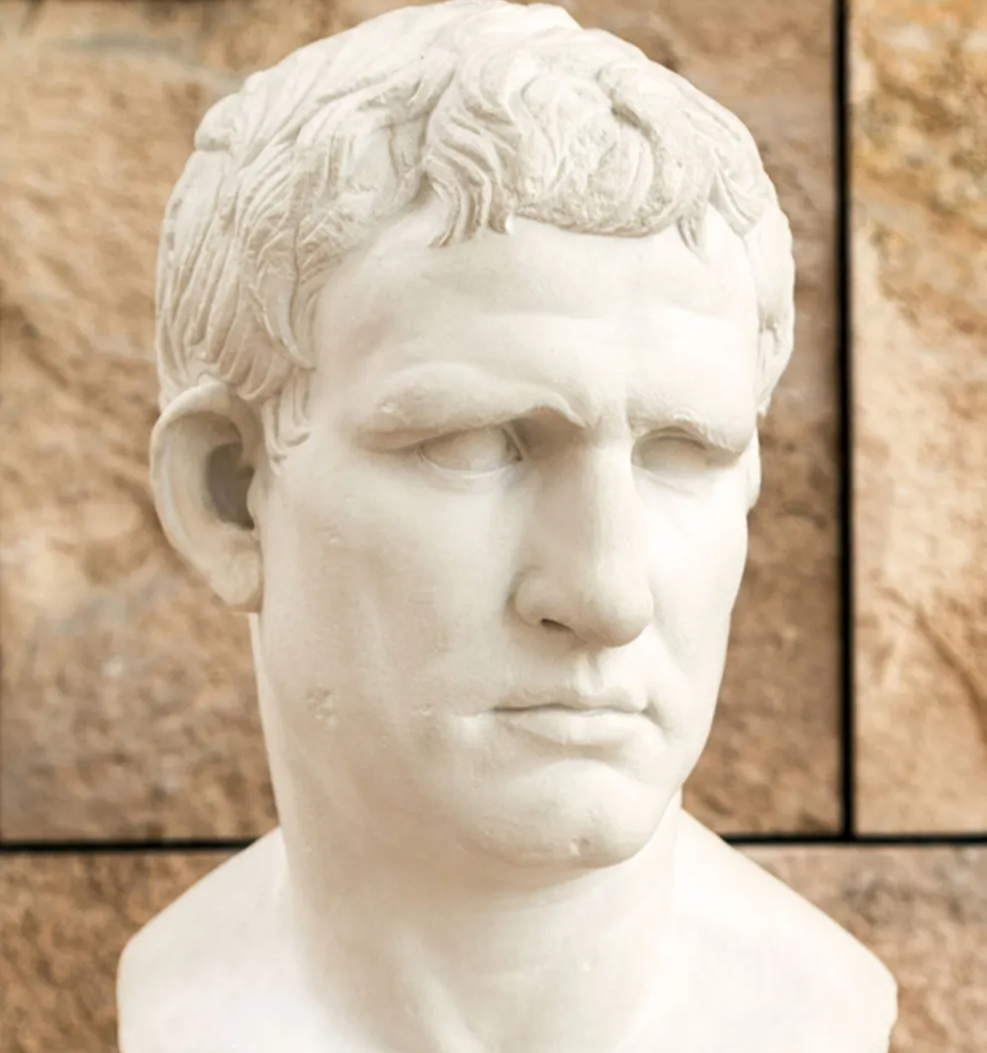
Sextus Pompey is the son of Pompey the Great and a significant adversary of the triumvirate comprising Lepidus, Octavius, and Antony. As a key figure challenging the established order, Pompey's actions and strategies play a crucial role in the political dynamics of "Antony and Cleopatra." His presence catalyzes the alliance between Antony, Octavius, and Lepidus, which later disintegrates after his removal.
Key Moments in the Play
- Act 2, Scene 1: Sextus Pompey discusses his potential in the Roman civil strife, believing his popularity and control of the sea will aid his success. He remarks on the political weaknesses of his opponents, criticizing Lepidus for his lack of loyalty and asserting Antony's distractions in Egypt.
- Act 2, Scene 6: Pompey meets with the triumvirs and negotiates a truce, securing control over Sicily and Sardinia in exchange for eliminating pirates and sending grain to Rome. This agreement temporarily stabilizes the political landscape.
- Act 3, Scene 5: The news of Octavius pushing Lepidus out of power and defeating Pompey highlights the shifting power dynamics. Pompey's fall from power underscores the fragility of alliances and the ruthless nature of Roman politics.
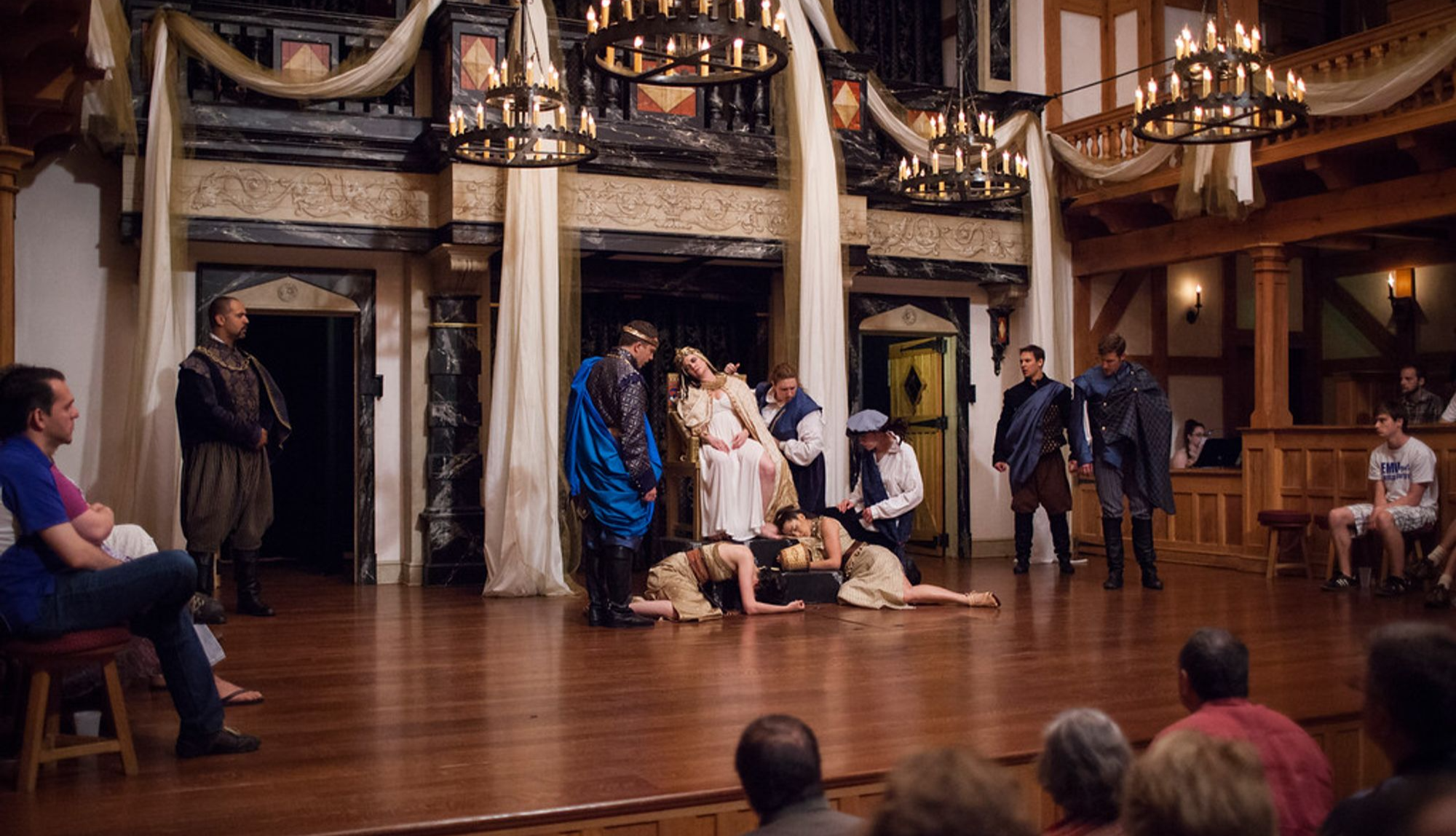
Key Themes
- Power and Ambition: Pompey's actions are driven by his desire to avenge his father and gain control over Rome. His ambition challenges the stability of the triumvirate and illustrates the constant struggle for dominance in Roman politics.
- Loyalty and Betrayal: The theme of loyalty is central to Pompey's interactions, particularly in how he perceives the loyalty (or lack thereof) among his rivals. His followers, like Menas, also reflect on the nature of loyalty and betrayal within their ranks.
Key Quotes
"My powers are crescent, and my auguring hope / Says it will come to the full. Mark Antony / In Egypt sits at dinner, and will make / No wars without doors: Caesar gets money where / He loses hearts: Lepidus flatters both, / Of both is flatter'd; but he neither loves, / Nor either cares for him." (Act 2, Scene 1)
- Pompey confidently predicts the growth of his power and criticizes the political and personal weaknesses of his opponents. This quote reflects his strategic thinking and awareness of the shifting loyalties within the triumvirate.
"Pompey, Octavius, Antony, and Lepidus meet to try to come to a truce before fighting. Pompey speaks of the death of Julius Caesar, and says that he is fighting in order to avenge his father, Pompey the Great. Lepidus asks Pompey what he thinks about the terms of peace they have offered." (Act 2, Scene 6)
- Pompey's declaration of his motives—avenging his father—highlights the personal vendettas that drive political conflicts in the play. His willingness to negotiate peace, however temporary, shows his pragmatic approach to achieving his aims.
Octavia
Overview
Octavia is the sister of Octavius Caesar and the wife of Mark Antony. She is portrayed as a virtuous and loyal woman, often caught between the powerful men in her life. Her marriage to Antony is a political manoeuvre intended to solidify an alliance between her brother and her husband, but ultimately, she is used as a pawn in their political games.
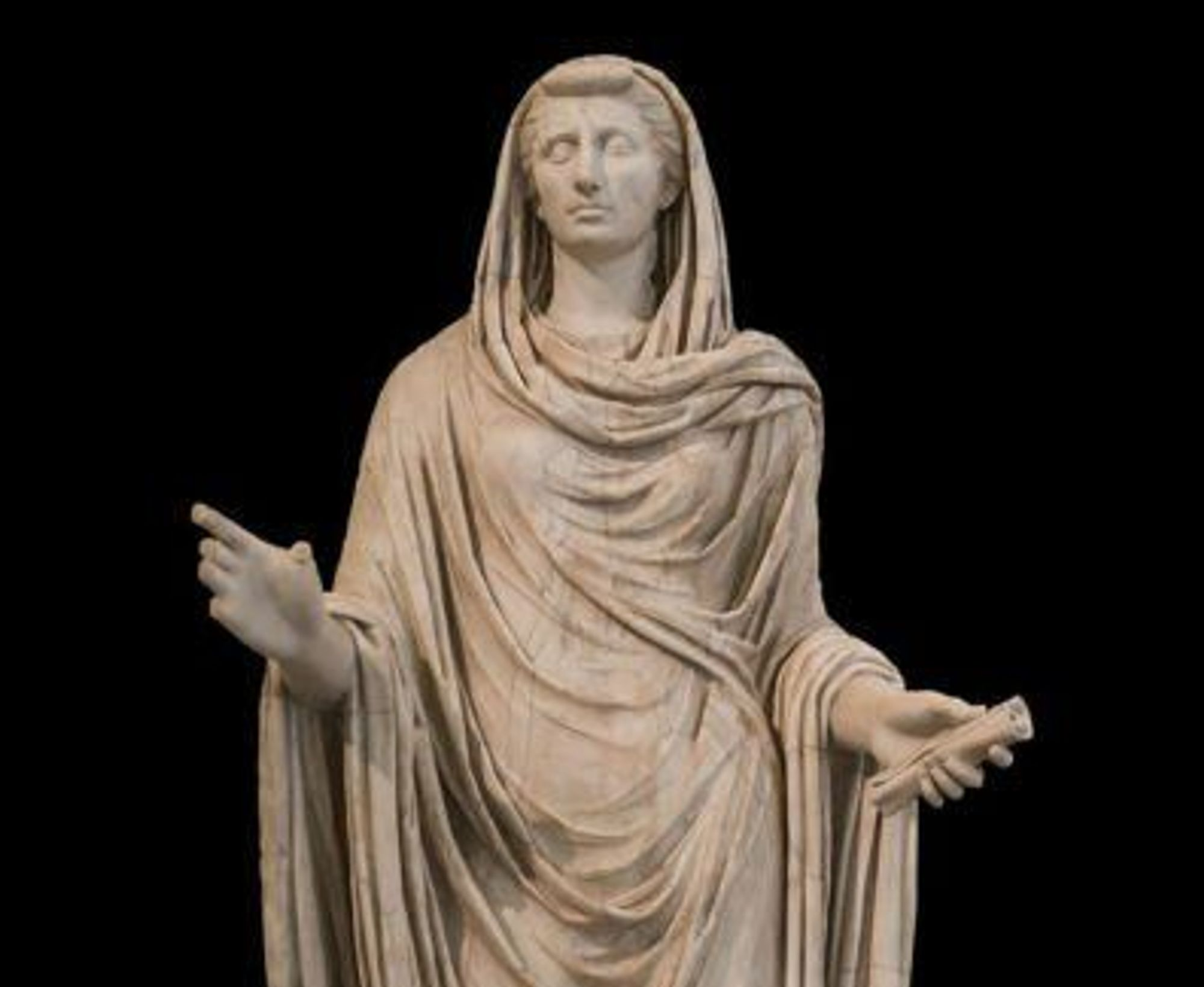
Key Moments in the Play
- Act 2, Scene 2: Octavia's marriage to Antony is proposed by Agrippa as a way to strengthen the political alliance between Antony and Octavius.
- Act 3, Scene 2: Octavia leaves Rome to join Antony, and her brother Octavius bids her a sorrowful farewell.
- Act 3, Scene 4: Octavia tries to mediate between Antony and Octavius, showing her loyalty to both men.
- Act 3, Scene 6: Octavia learns of Antony's betrayal as he has returned to Cleopatra, which places her in a tragic position of loyalty torn between her husband and her brother.
Key Themes
- Loyalty and Betrayal: Octavia's character highlights the theme of loyalty and the pain of betrayal. Her unwavering loyalty to both her brother and her husband is evident, but she is ultimately betrayed by Antony, who returns to Cleopatra.
- Political Manipulation: Octavia is a tool in the political strategies of the men around her. Her marriage to Antony is orchestrated to cement alliances rather than for personal affection.
- Tragic Innocence: Octavia is depicted as a tragic figure, caught in the crossfire of political ambition and personal vendettas. Her virtue and innocence stand in stark contrast to the manipulative and power-driven characters around her.
Key Quotes
"A more unhappy lady, If this division chance, ne'er stood between, Praying for both parts: The good gods me presently, When I shall pray, 'O bless my lord and husband!' Undo that prayer, by crying out as loud, 'O, bless my brother!' Husband win, win brother, Prays, and destroys the prayer; no midway 'Twixt these extremes at all." (Act 3, Scene 4)
- Octavia laments her impossible situation, praying for both her brother and her husband who are in conflict. Her words reflect her tragic position and the emotional turmoil she faces.
"My lord, in Athens. No, my most wronged sister; Cleopatra Hath nodded him to her. He hath given his empire Up to a whore; who now are levying The kings o' the earth for war." (Act 3, Scene 6)
- Octavius informs Octavia that Antony has betrayed her and returned to Cleopatra. This revelation highlights the depth of Antony's betrayal and Octavia's tragic fate.
"Cleopatra Hath nodded him to her. He hath given his empire Up to a whore; who now are levying The kings o' the earth for war." (Act 3, Scene 6)
- Octavius speaks these words to Octavia, revealing Antony's return to Cleopatra and emphasizing the political and personal betrayal Octavia experiences.
500K+ Students Use These Powerful Tools to Master Character Analysis For their A-Level Exams.
Enhance your understanding with flashcards, quizzes, and exams—designed to help you grasp key concepts, reinforce learning, and master any topic with confidence!
60 flashcards
Flashcards on Character Analysis
Revise key concepts with interactive flashcards.
Try English Literature Flashcards6 quizzes
Quizzes on Character Analysis
Test your knowledge with fun and engaging quizzes.
Try English Literature Quizzes29 questions
Exam questions on Character Analysis
Boost your confidence with real exam questions.
Try English Literature Questions27 exams created
Exam Builder on Character Analysis
Create custom exams across topics for better practice!
Try English Literature exam builder12 papers
Past Papers on Character Analysis
Practice past papers to reinforce exam experience.
Try English Literature Past PapersOther Revision Notes related to Character Analysis you should explore
Discover More Revision Notes Related to Character Analysis to Deepen Your Understanding and Improve Your Mastery
